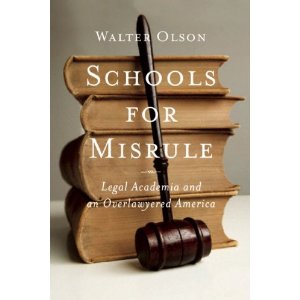 I’m beginning to set up the speaking tour on my forthcoming book (background) and from the invitations already on hand it looks as if over the next few months I’ll be visiting New York, Texas, the Midwest, northern California and the Rocky Mountain states, often speaking to Federalist Society chapters. Why not invite me to your area, or check about adding your venue to an already planned swing? Diane Morris at the Cato Institute in Washington, D.C. is taking the lead in handling arrangements; you can reach her at 789-5226, area code 202, or at dmorris – at – cato – dot – org.
I’m beginning to set up the speaking tour on my forthcoming book (background) and from the invitations already on hand it looks as if over the next few months I’ll be visiting New York, Texas, the Midwest, northern California and the Rocky Mountain states, often speaking to Federalist Society chapters. Why not invite me to your area, or check about adding your venue to an already planned swing? Diane Morris at the Cato Institute in Washington, D.C. is taking the lead in handling arrangements; you can reach her at 789-5226, area code 202, or at dmorris – at – cato – dot – org.
Chief Judge Alex Kozinski of the U.S. Court of Appeals for the Ninth Circuit just contributed this great blurb for Schools for Misrule:
Every year I hire as law clerks some of the best and
brightest law students in the country, and spend a year
wringing out of them all the wrong-headed ideas their law
professors taught them. Now I know why.
To see what newsman John Stossel, author Philip K. Howard and Georgetown lawprof Randy Barnett said about the book, check out the jacket (PDF).
Filed under: Schools for Misrule

 I’m beginning to set up the speaking tour on my forthcoming book (
I’m beginning to set up the speaking tour on my forthcoming book (